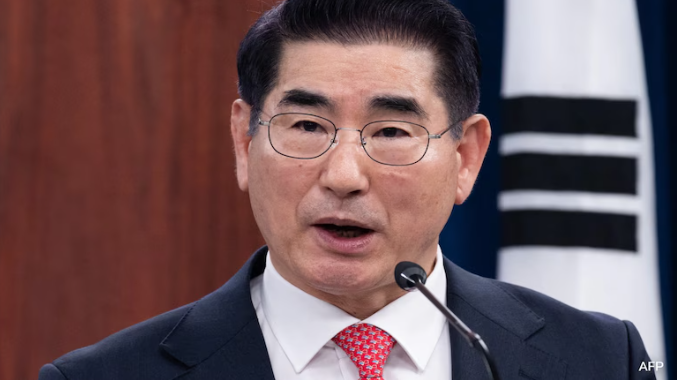Introduction
South Korea’s former Defense Minister, Kim Yong-hyun, was arrested on December 4, 2024, marking a dramatic escalation in the controversy surrounding the country’s political and constitutional crisis. The arrest stems from Kim’s alleged role in the declaration of martial law by President Yoon Suk-yeol—a move widely criticized as unconstitutional. This event has reignited debates over military authority, the balance of power in South Korea, and the potential misuse of martial law provisions.
South Korea’s Background of the Crisis
On December 3, 2024, President Yoon Suk-yeol declared martial law, citing the need to combat “anti-state activities” by opposition lawmakers he accused of undermining national security. This declaration came amidst escalating tensions between the conservative President and the liberal-dominated National Assembly. Critics have argued that the move was an overreach, designed to suppress opposition and maintain control over a fractious political environment【12】【13】.
Kim Yong-hyun, as the then-Defense Minister, allegedly directed military deployments that sought to enforce the martial law decree. This included ordering troops to block National Assembly members from accessing the legislative chamber, effectively stalling governance. Opposition lawmakers eventually managed to convene, voting unanimously to overturn the decree before daybreak on December 4【12】.
Legal and Ethical Questions
Kim’s arrest followed the approval of a warrant by a Seoul court on charges of rebellion and abuse of power. Prosecutors allege that Kim played a pivotal role in coordinating the use of military force to obstruct parliamentary functions, an action described as unconstitutional and akin to a coup attempt. This arrest marks the first time a high-ranking official has been detained in connection with the martial law scandal【12】.
Critics point out that South Korea’s constitution permits the declaration of martial law only under dire circumstances such as war or severe national emergencies. The lack of such conditions has led many to label the President’s actions—and Kim’s alleged involvement—as a blatant abuse of authority【13】.  For the more information click on this link
For the more information click on this link
Impact on South Korean Politics
The arrest has had a profound effect on South Korea’s political landscape. President Yoon faces intense scrutiny, with opposition lawmakers and civic groups calling for his impeachment. Although an impeachment motion recently failed due to a boycott by members of Yoon’s ruling party, the incident has weakened his administration and sparked nationwide protests【13】.
The scandal has also highlighted the precarious nature of civil-military relations in South Korea. The military’s involvement in political disputes has drawn criticism, with many arguing that such actions undermine the democratic process. The fallout from this incident could lead to calls for reforms in how military authority is exercised during political crises【13】.
Reactions and Public Sentiment
Public reaction to Kim Yong-hyun’s arrest has been mixed. Supporters of the opposition view it as a step toward justice, while some conservatives argue that the charges against him are politically motivated. Meanwhile, international observers have expressed concerns over the stability of South Korea’s democracy and its implications for regional security【12】【13】.  For the more information click on this link
For the more information click on this link
Future Implications
The arrest of Kim Yong-hyun and the broader martial law scandal represent a critical juncture for South Korea. The case is likely to serve as a litmus test for the judiciary’s independence and the robustness of constitutional safeguards. Additionally, it could redefine civil-military relations and set new precedents for accountability in governance.
As the investigation unfolds, the nation watches closely to see whether justice will be served and whether lessons will be learned to prevent similar crises in the future. This moment in South Korea’s history underscores the ongoing challenges of balancing power, maintaining democratic integrity, and ensuring that the military remains a neutral actor in domestic affairs.
Conclusion
The arrest of former Defense Minister Kim Yong-hyun is a watershed moment in South Korean politics, reflecting the deep divisions and challenges within the nation’s political system. As the legal proceedings advance, the implications for South Korea’s democracy and governance will be profound. The scandal serves as a stark reminder of the importance of constitutional adherence and the need for vigilance against authoritarian tendencies in any democratic society. ALSO READ:- Israel Intensifies Air Strikes as Ground Troops Enter Syria 2024




